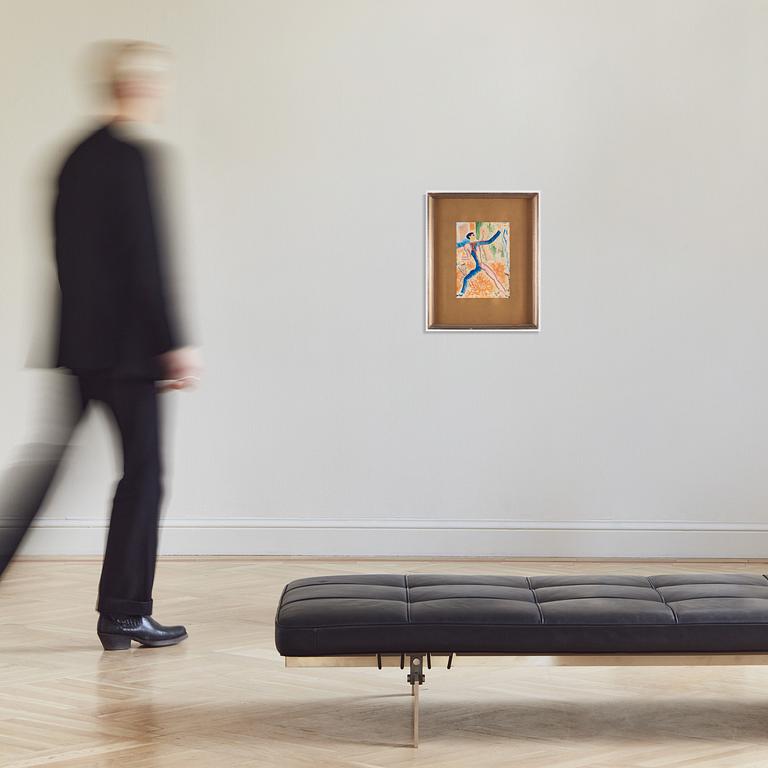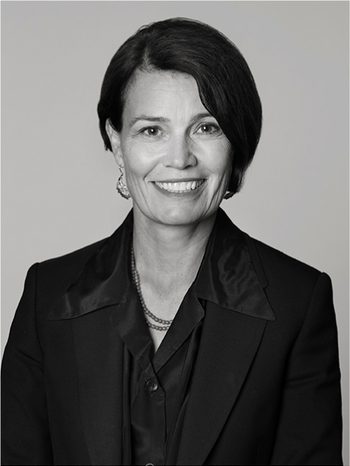Isaac Grünewald
Self portrait before the easel
Signed I. Grünewald. Probably executed 1915. Watercolor on paper 35 x 25 cm.
Muut tiedot
After his years in Paris and his encounter with Matisse, Isaac Grünewald also came into contact with German expressionism. At the major expressionist exhibition "Sonderbund" in Cologne in 1912, participants included Cézanne, van Gogh, Gauguin, Munch, and others, as well as two Swedes, namely Isaac Grünewald and Gösta Sandels. A few years later, in 1915, Isaac exhibited together with Sigrid Hjertén at the avant-garde gallery "Der Sturm," which marked their international breakthrough. The gallery "Der Sturm," led by the legendary Herwarth Walden, also published an art magazine by the same name, which became a breeding ground for experimental artists, especially for expressionism, which emerged during the first half of the 20th century in groups like "Die Blaue Reiter" and "Die Brücke." Their time in Berlin had a significant impact on Grünewald's painting, which became more radicalized. The exhibition at "Der Sturm" received positive reviews in the German press. Through their contacts with German expressionism and their meeting with the German-Russian artist couple Wassily Kandinsky and Gabriele Münter in Paris and later in Stockholm, Sigrid and Isaac became full-fledged expressionists.
The auction’s work, most likely created at the same time as "Det sjungande trädet", depicts a confident Isaac in front of an easel with his brush in full action. His clothes are elegant, as he and his wife were both very fashion-conscious. Cobalt blue contrasts boldly with pink. In the background, Sigrid is glimpsed holding their son Iván's hand. The ground glows with orange forms, and the intensity of the creative process is unmistakable





















































